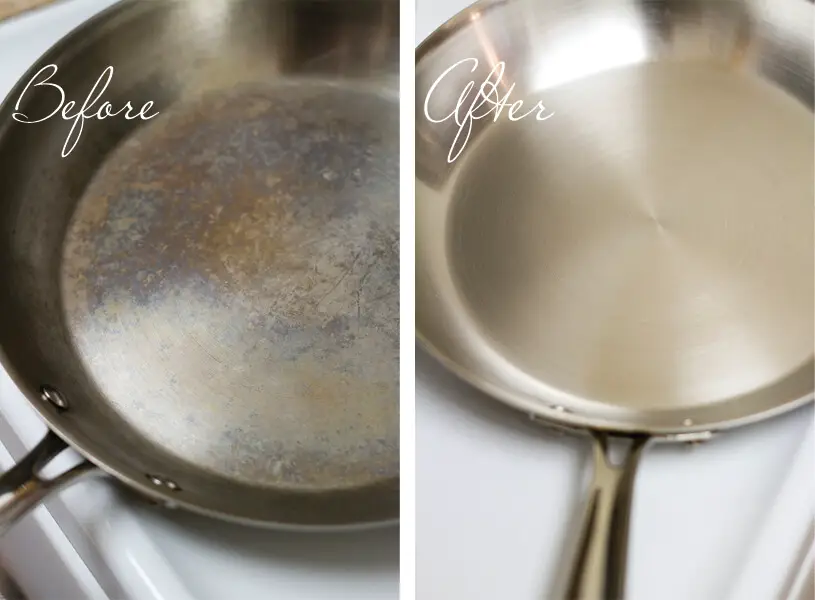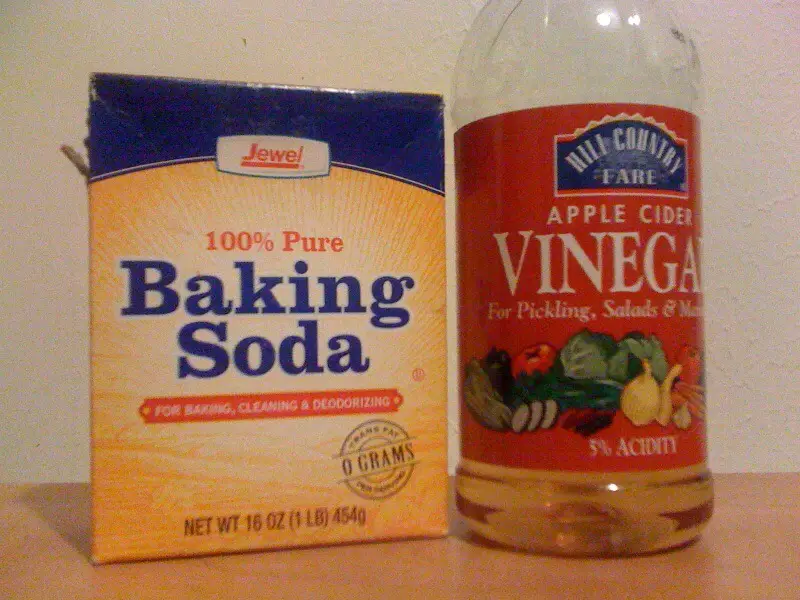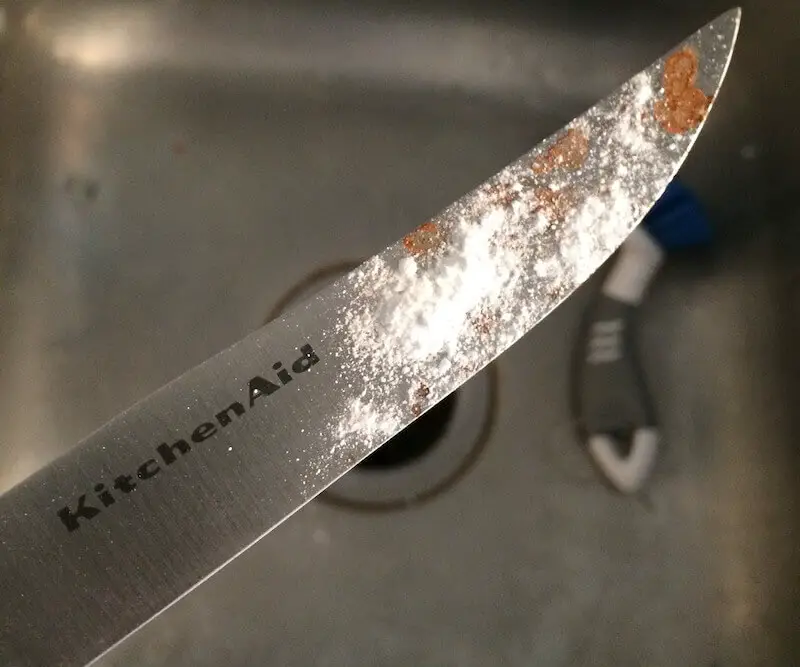When your stainless steel and metal pots and pans begin to collect rust, you may need a resource to refer to when cleaning. This article will cover what to do and how to go about it when cleaning your stainless steel or metal kitchen pots and pans.
This article is important because if you don’t know how to properly clean your pots and pans, you could damage them permanently. Using certain cleaning soaps and liquids can indeed damage stainless steel and other metals.
When rust forms on your kitchen utensils, it can be quite worrisome and unappealing. To avoid having this worry and unappealing look to your kitchen utensils, below are ways to go about cleaning your kitchen supplies when they are made of stainless steel and metal.
How to Remove Rust from Stainless Steel

Stainless steel has a chromium film on its surface area but when this film wears out the kitchen utensil can start to form rust.
To remove any rust from your stainless steel, there are some things that you should avoid doing.
When cleaning your stainless steel, avoid using coarse cleaning powders, as they will ruin and remove any of the remaining finish on the utensil. Also, avoid using steel wool in a cleaning sponge. Using steel wool will permanently scratch your pots and pans.
When it comes to cleaning your stainless steel, one of the best options is to use baking soda and water with a cloth or soft scrub brush. When you prepare your cleaning formula made from the baking soda and water, begin to clean in the direction of the grainy rust that has formed. It might take some force to remove the rust but it will do the trick. After you are done cleaning, rinse your stainless steel utensil with clean water and a dry clean soft cloth.
Clean Rust with Vinegar and Baking Soda

Although you can clean rust off stainless steel with just baking soda and water, for more gritty rusts you might want to add vinegar and salt.
When preparing the vinegar, baking soda, and salt begin by adding half a cup of salt to half a gallon of vinegar in a plastic container that is big enough to hold all your rusty kitchen utensils. Let your kitchen utensils soak for about twelve hours in the solution. After the twelve hours is up, drain the solution and rinse off your kitchen utensils. After you rinse them, return them to the container and add half a gallon of water and half a cup of baking soda. This will neutralize any of the vinegar on your kitchen utensils. Let them soak for 10 minutes then rinse them with warm water. Finish by drying off your kitchen utensils with a clean and soft cloth.
Remove Rust From Metal Baking Pans
There are several ways to remove rust from metal baking pans.
One of the first ways includes rinsing your pan, shaking it dry, then dusting it with baking soda. When dusting the pan, make sure you cover all the rusty areas. Leave the dust of baking soda on the pan for about an hour then use a bristle brush to scrub the rust off. Last, rinse off your pan then dry with a clean cloth.
The second way is to let your pan soak in a bath of white vinegar overnight. After waiting overnight for your pan to soak, remove it from the vinegar bath and begin scrubbing it with a kitchen scrub brush. If you don’t have a container to soak your pan in white vinegar you could also soak clothes and wrap them around the rusty areas. Don’t forget to rinse with warm water and dry with a soft clean cloth when done scrubbing.
The third and last way to clean rust off a pan is to use lemon and salt. Coat the rusty pan with salt and then squeeze a lemon or lime that has been cut in half over the layer of salt. Let your pan sit after squeezing the lemon over the salt for a couple of hours before scrubbing away the ruse. If any rust remains you can repeat this process and let the mixture sit for an additional hour or so. Once all the rust is gone, rinse your pan with warm water and then pat it dry with a clean cloth.
How to Remove Rust from Knives

It seems that vinegar is good for just about any cleaning that needs to be done around the house, including your rusty knives. Submerge your rust knives carefully into a tub of vinegar and let them sit overnight. After letting your knives sit for a good amount of time, remove them, scrub off the rust with a bristle brush or bristle sponge. Scrubbing them may take a bit of effort, as most cleaning does, but once you remove the rust your knives will have a new kind of glamour and be rust-free.
If you tried vinegar already or are looking for another way to clean your knives, baking soda is another household cleaning supply that can be used when vinegar alone does not remove the rust from your knives. Begin by mixing water and the baking soda into a toothpaste-like substance. Make sure the paste is thick enough to spread all over your knives. Let your knives sit with the paste on them for an hour or so before using a scrub brush to remove any rust. Rinse the paste off after scrubbing with water and dry with a clean cloth.
Lemon and salt are also good for knives since it is a food-grade way to clean them. Just as you clean your pans with lemon and salt, sprinkle salt over the rust on your knives and squeeze a lemon of the surface area. Let your knives sit for about two hours. Rinse and dry. You can repeat this process if rust remains.
Here is a video guide on how to remove rust from Pots and Pans:
How to Keep Pots and Pans from Rusting
It can be a pain to clean rust off of pots and pans. To keep them from rusting, there are some tips to follow that can help.
Always make sure your pots and pans are thoroughly clean. This may mean spot-checking them if you run them through a dishwasher. Dishwashers are convenient but not always the most effective in keeping your pots and pans pristine.
Make sure your pots and pans are completely dry before storing them away in cupboard space. This will help keep the moisture from forming rust.
Store your pots and pans away in a cool, dry, and dark space in your kitchen to ensure that heat or humid temperatures don’t take a toll building rust on them.
Rust usually forms when your pans are moist for water and are in a storage place without being dried off completely.
Following the above tips will help keep your pots, pans, and other kitchen utensils rust-free.
Conclusion
Rust is not only a pain to deal with but is just plain gross and laboring to get rid of. This article may help make things easier and help you keep the rust away from your kitchen utensils.
To ensure your kitchen utensils stay rust-free, the article above may help you when cleaning rust or following suggestions to keep the rust away.
